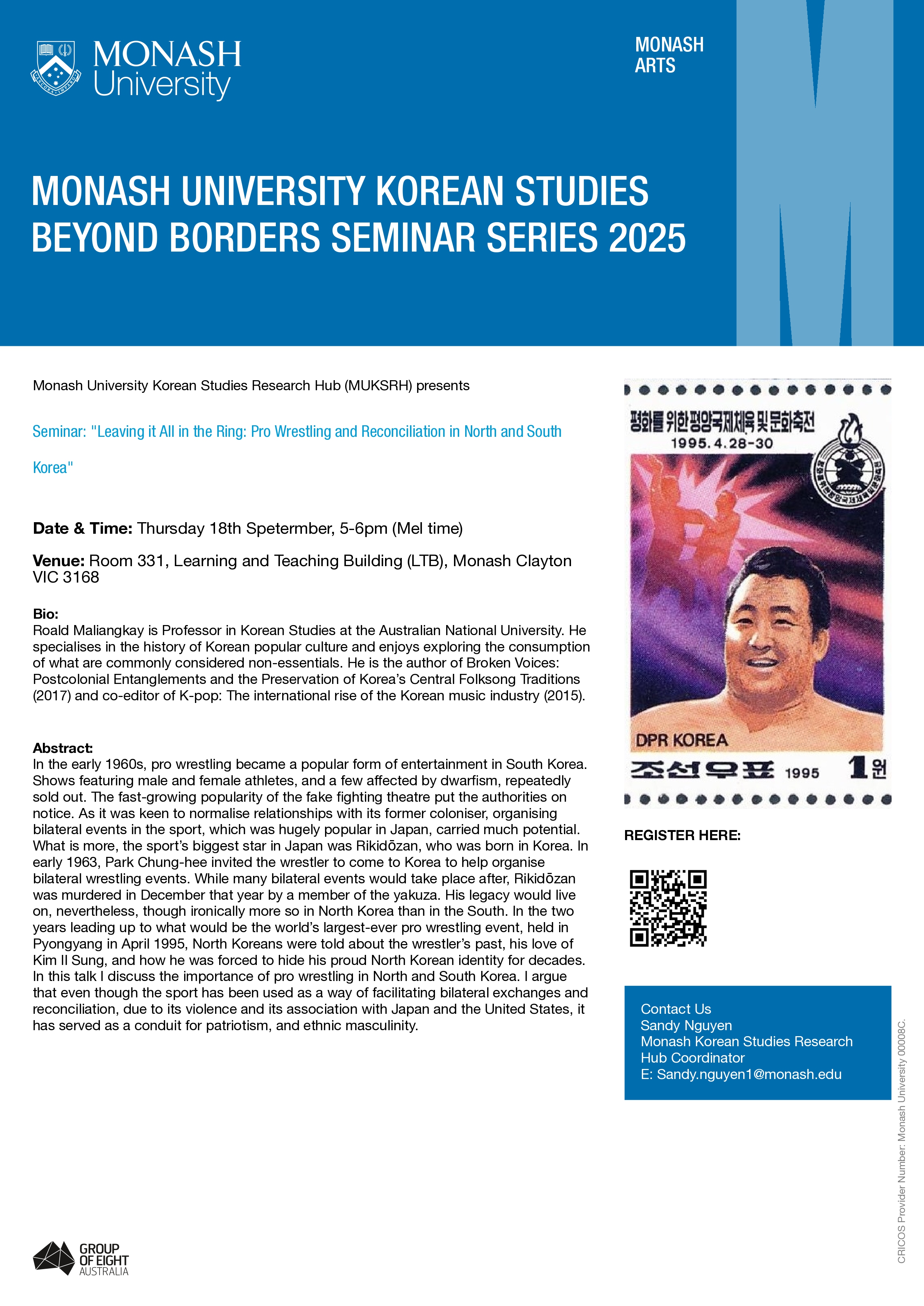time zone will be applied.
Report this post?

Monash Korean Studies Seminar Series 2025: "Leaving it All in the Ring: Pro Wrestling and Reconciliation in North and South Korea."
Talk from Professor Roald Maliangkay (ANU)
Date & Time: 18th September, 5-6pm (Mel time)
Venue: Room 331, Learning and Teaching Building (LTB), Monash Clayton VIC 3168
Abstract:
In the early 1960s, pro wrestling became a popular form of entertainment in South Korea. Shows featuring male and female athletes, and a few affected by dwarfism, repeatedly sold out. The fast-growing popularity of the fake fighting theatre put the authorities on notice. As it was keen to normalise relationships with its former coloniser, organising bilateral events in the sport, which was hugely popular in Japan, carried much potential. What is more, the sport’s biggest star in Japan was Rikidōzan, who was born in Korea. In early 1963, Park Chung-hee invited the wrestler to come to Korea to help organise bilateral wrestling events. While many bilateral events would take place after, Rikidōzan was murdered in December that year by a member of the yakuza. His legacy would live on, nevertheless, though ironically more so in North Korea than in the South. In the two years leading up to what would be the world’s largest-ever pro wrestling event, held in Pyongyang in April 1995, North Koreans were told about the wrestler’s past, his love of Kim Il Sung, and how he was forced to hide his proud North Korean identity for decades. In this talk I discuss the importance of pro wrestling in North and South Korea. I argue that even though the sport has been used as a way of facilitating bilateral exchanges and reconciliation, due to its violence and its association with Japan and the United States, it has served as a conduit for patriotism, and ethnic masculinity.
Bio:
Roald Maliangkay is Professor in Korean Studies at the Australian National University. He specialises in the history of Korean popular culture and enjoys exploring the consumption of what are commonly considered non-essentials. He is the author of Broken Voices: Postcolonial Entanglements and the Preservation of Korea’s Central Folksong Traditions (2017) and co-editor of K-pop: The international rise of the Korean music industry (2015).
Contact person: Sandy Nguyen (Sandy.nguyen1@monash.edu)